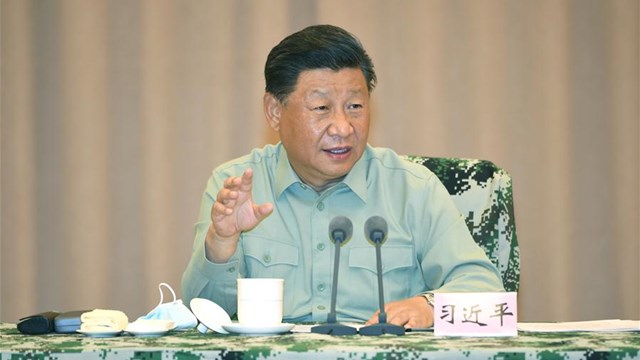By Zamir Ahmed Awan
The 14th Five-Year Plan (FYP) will be up for discussion at the fifth plenary session of the 19th Central Committee of the Communist Party of China (CPC), to be held from October 26 to 29 in Beijing. The proposals for formulating the 14th Five-Year (2021-2025) Plan for Economic and Social Development and forthcoming targets for 2035 will be assessed during the session.
China is a market economy with Chinese characteristics. The first Five-Year Plan (FYP) was implemented in 1953-58, and the latest, currently being implemented, is the 13th Five-Year Plan. Formed every five years since 1953, the Five-Year Plan is a significant feature of China’s governance system, setting growth goals and outlining development policies. It allows the authorities to map out policies for overall economic and social development and advance with the times.
The success of the 13th Five-Year Plan and its achievements have given strong confidence to policymakers, planners, economists, decision-makers, and leaders to be bold in setting targets for the 14th Five-Year Plan. Despite the devastating economic damage and challenges brought by the COVID-19 pandemic, China has made remarkable overall progress, especially in scientific and technological areas. China’s gross domestic product (GDP) expanded by 4.9% in the third quarter from a year earlier, putting China’s economy back on to its pre-coronavirus trajectory half a year after it was gutted by the pandemic.
In fact, the Chinese economy is broad-based, with a vast domestic market and unfathomably large global market. While manufacturing worldwide is suffering due to COVID-19, China has already brought its industry back to normal operations, meeting global demand.
Keeping its tradition of involving the public, China has been soliciting public opinions online for compiling the 14th FYP since mid-August. President Xi Jinping chaired a series of symposiums to directly listen to the views and proposals in various areas related to the FYP. Economists, intellectuals, engineers, scientists, policy makers and political leaders are working in close consultation with each other and seeking guidance from specialists and professionals while compiling recommendations for the 14th FYP.
China is passing through a difficult experience: COVID-19 and rapidly changing geopolitics have impacted the country adversely. China’s everyday challenges and difficulties both visible and invisible for the 14th FYP will be deliberated in the upcoming meeting.
China is expected to stick to the path of high-quality reforms and further opening up. This policy has been proven successful, benefiting the state and general public. The next FYP will be formulated and designed to face the challenges in the coming days and beyond.
It is worth observing that a 15-year “long-term vision” was mentioned along with the 14th Five-Year Plan this year, targeting 2035 when the country’s socialist modernization is expected to be basically achieved.
Zamir Ahmed Awan is a senior fellow with the Center for China and Globalization (CCG) and a sinologist at the National University of Sciences and Technology in Pakistan. E-mail: [email protected].












